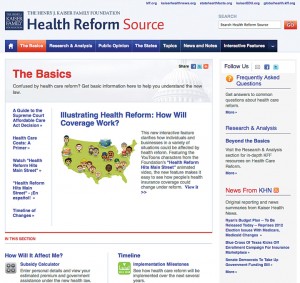FAQs about Obamacare
This article is found within the main article Navigating Washington.
This year and next is when we will see the full rollout of the Affordable Care Act.
Whether you call it by its full name or the more popular “Obamacare,” the series of health care reforms passed in 2010 could drastically impact your business in ways negative and positive.
There’s a lot of confusion out there about the provisions of the Affordable Care Act and how they affect businesses. Here are a few key things you need to know. Most importantly, work with your insurance agent or other expert to make sure you make the right decisions for your business.
Does every business have to provide health insurance?
No. Only businesses with more than 50 full-time equivalent employees (someone who works at least 30 hours a week) have to provide insurance or pay a penalty to the government. Businesses with fewer than 50 FTE employees do not. For those companies with a large number of part-time employees there is a rather complicated formula on the IRS website to determine if it applies.
How about those small business tax credits?
Employers with 25 or fewer employees with an average wage of less than $50,000 may be eligible for a health insurance tax credit. To be eligible, you must cover at least 50 percent of the cost of your employees’ insurance. This year, the maximum credit is 35 percent of the amount you pay toward insurance premiums. Starting in 2014, the maximum credit is 50 percent.
What do I need to know about the health exchanges?
Under the law, the new state-based health insurance exchanges are supposed to be available by October 1 so individuals can purchase insurance to start in 2014. (Many states are opting to participate in the federal exchange instead.) The idea is that these open marketplaces will allow consumers and employers to make an informed choice in buying insurance. Depending on your insurance costs and the size of your business, you may be better off with you and your employees buying your insurance through an exchange. At some point, business owners also will be required to officially notify their employees of the existence of the exchanges. The law’s original deadline for that notification was March 1, but it has been indefinitely delayed because of the slow rollout of the exchanges.
Will my taxes go up to pay for it?
Maybe. On an individual basis, if you make more than $200,000 ($250,000 filing jointly) a year, you will pay a Medicare tax increase of 0.9 percent starting this year. There is also a new 3.8-percent Medicare tax on investment earnings at the same income levels. Starting in 2018, a business may also have to pay the so-called “Cadillac” tax if the benefits they provide exceed $10,200 for an individual and $27,500 for a family. The tax is 40 percent of the amount above those levels.
Got more questions?
Here are a few good resources to help you get started:
 IRS Affordable Care Act Tax Guide
IRS Affordable Care Act Tax Guide
http://www.irs.gov/uac/Affordable-Care-Act-Tax-Provisions
Kaiser Family Foundation Health Reform Source
http://healthreform.kff.org/en/the-basics.aspx
Commonwealth Fund Health Reform Resource Center
http://www.commonwealthfund.org/Health-Reform/Health-Reform-Resource.aspx




